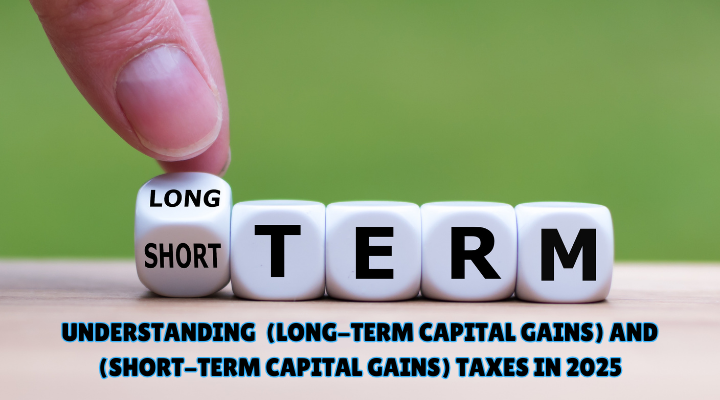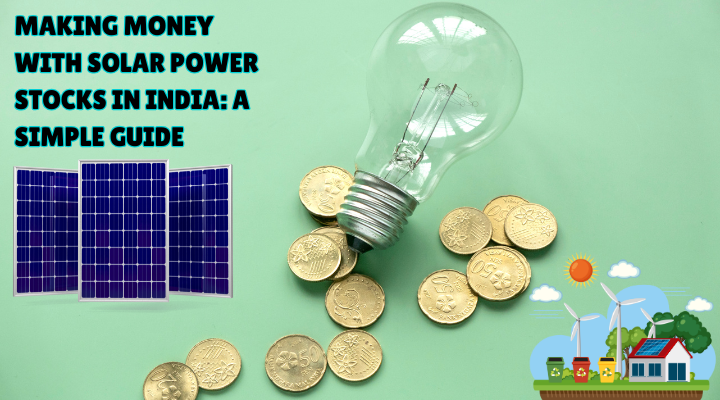.png)
You're sipping your morning chai, scrolling through the news, and suddenly—bam!—you see headlines about two major countries locking horns.
Before you can even take another sip, your stock portfolio starts bleeding red. Scary, isn't it?
This is exactly how geopolitical risks can shake things up.
From trade wars to global conflicts, these big events ripple through markets worldwide, and let’s face it—Indian investors like us feel the heat too.
In this article, we’ll break down how these risks impact us and, more importantly, how we can safeguard our hard-earned money.
What Are Geopolitical Risks?
In simple terms, geopolitical risks are events that disrupt peace or stability between countries. These events don’t just make headlines—they hit economies and stock markets hard. Here are some common examples:
Trade Wars: Think of the U.S.-China trade battles. When these superpowers clash over policies, businesses everywhere feel the pinch.
Conflicts: Wars, like the ongoing Russia-Ukraine situation, tend to push up oil prices.
And we know high oil prices can mean trouble for India’s economy.
Sanctions: This is when one country punishes another by cutting off trade or financial access. While it might seem like a distant issue, it can shake up global markets in surprising ways.
These events might seem far removed from our lives, but their effects can hit closer to home—like when your mutual fund NAV drops or your favorite stock tanks overnight.
When these superpowers clash over policies, businesses everywhere feel the pinch.
Conflicts: Wars, like the ongoing Russia-Ukraine situation, tend to push up oil prices. And we know high oil prices can mean trouble for India’s economy.
Sanctions: This is when one country punishes another by cutting off trade or financial access.
While it might seem like a distant issue, it can shake up global markets in surprising ways.
These events might seem far removed from our lives, but their effects can hit closer to home—like when your mutual fund NAV drops or your favorite stock tanks overnight.
Stay tuned to learn how you can shield your investments from these unpredictable risks!
Why Should Indian Investors Care?
India’s stock market depends a lot on foreign investments.
When there’s trouble in the world, foreign investors often pull out their money from Indian markets, which makes our stock prices fall.
Also, many Indian industries are linked to global events.
For example:
In 2022, when Russia invaded Ukraine, crude oil prices went above $100 per barrel. Since India imports 85% of its oil, it caused inflation (price rise) and hurt the market.
Our IT companies like TCS and Infosys rely on clients in the U.S. and Europe. If there are problems in these countries, our IT sector also suffers.
How Different Sectors Are Affected
Geopolitical risks don’t harm all industries equally. Some are hit harder than others:
Energy Sector: Conflicts in oil-rich regions like the Middle East make oil prices rise. While companies like ONGC might make some profit, higher oil prices increase costs for the rest of the country.
Technology: If there are restrictions on trade (like the U.S.-China tech war), our IT companies that depend on foreign contracts face trouble. Even car and electronic manufacturers suffer if they can’t get important parts like chips.
Travel & Tourism: Wars, pandemics, or travel bans badly affect airlines and tourism businesses. Indian airlines, already dealing with high fuel prices, struggle even more.
Emerging Markets Like India vs. Developed Countries
When there’s global tension, investors move their money to safer countries like the U.S. This is called a “flight to safety.”
Developed Markets (like the U.S.): These economies get more investments because they are seen as safe.
Emerging Markets (like India): Countries like ours lose investments, and this creates big sell-offs in the stock market.
For example, during the 2020 COVID-19 pandemic, many foreign investors pulled out their money from India.
This caused our stock market to crash, while countries like the U.S. benefited from investments in “safe” assets like gold and bonds.
How Can You Handle Geopolitical Risks?
Even though you can’t control global events, you can protect your investments with smart strategies. Here’s how:
Diversify Your Investments:
Don’t put all your money in one place. Invest in different asset classes like gold (which is considered safe) or international funds.
Spread your investments across countries by buying global ETFs or mutual funds.
Hedge Your Risks:
Use tools like options and futures to protect your investments during uncertain times.
Invest in commodities like gold or silver, which usually perform well during crises.
Stay Prepared:
Keep an eye on global events. Use apps or tools that forecast risks to plan your next move.
Long-Term Effects of Geopolitical Risks on India
While geopolitical risks create short-term problems, they also bring some long-term changes:
Boost for Local Production: Conflicts may force India to manufacture more goods locally, helping programs like “Make in India.”
Impact on Economy: High oil prices or disruptions in trade hurt India’s GDP growth. Export-based industries like IT and textiles suffer the most.
Government Actions: India’s smart diplomacy (like maintaining good relations with both Russia and the U.S.) helps reduce some risks. Initiatives like Atmanirbhar Bharat also prepare India for future challenges.
Practical Tips for Indian Investors
Here’s how you can protect your money when global events create chaos:
Stay Updated: Keep track of news, but don’t panic over every headline.
Think Long-Term: The stock market may fall in the short term, but focus on your long-term goals.
Diversify Wisely: Invest in global funds, gold, or ETFs to reduce risks.
Conclusion
Geopolitical risks are a part of today’s world, but they don’t have to scare you. For Indian investors, these risks bring challenges and opportunities.
By staying informed, spreading your investments, and using risk management tools, you can protect your portfolio and grow your wealth.
As Warren Buffett wisely said, “Risk comes from not knowing what you’re doing.” So, educate yourself, stay calm, and be ready for whatever the world throws at you!
What’s Your Take?
How do you manage your investments during global uncertainties? Share your thoughts in the comments below!
Comments (0)
Categories
Recent posts


Tips on how to select the Best Share ...
18 Sep 2024
LTCG vs. STCG Taxes in India (2025): ...
27 Jan 2025
Making Money with Solar Power Stocks in ...
28 Jan 2025



